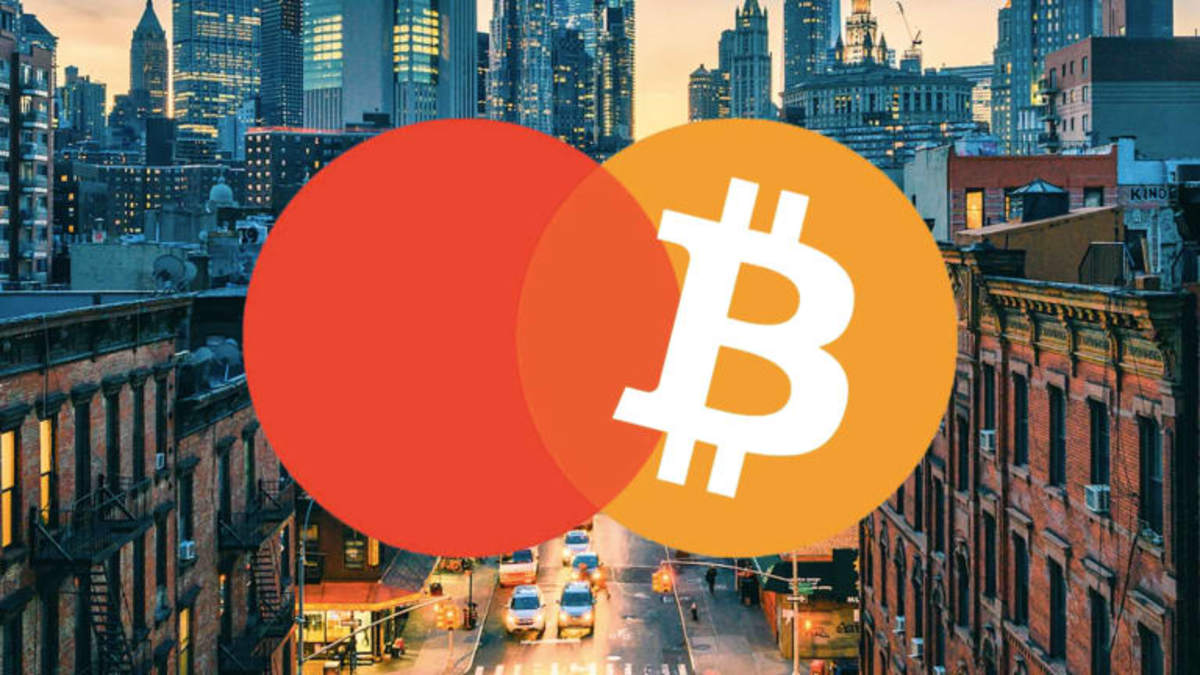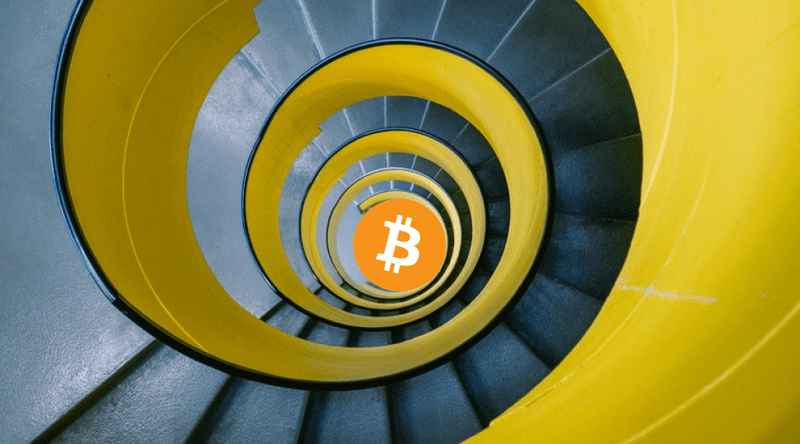In 2020, Bitcoin Was Significantly Derisked
2020 was unforgettable, especially for Bitcoin. To help memorialize this year for our readers, we asked our network of contributors to reflect on Bitcoin’s price action, technological development, community growth and more in 2020, and to reflect on what all of this might mean for 2021. These writers responded with a collection of thoughtful and thought-provoking articles. Click here to read all of the stories from our 2020 End Of Year Series.
In previous years, traditional investors and businesses had been averse to opening their arms (and wallets) to bitcoin. For many, it had too many unknowns, too much risk and too much baggage. Not to mention the mountains of hit pieces drafted up by mainstream media outlets deriding Bitcoin for a myriad of reasons: Bitcoin is just a ponzi scheme backed by absolutely nothing, they said. Bitcoin will be banned. It’s for criminals. Bitcoin is too volatile to be a good store of value. It will just be copied by someone else. Even legendary investor Warren Buffet threw his hat into the ring, stating that Bitcoin is “probably rat poison squared” at Berkshire Hathaway’s 2018 annual shareholder meeting.
But not only has bitcoin not gone to zero by 2020. This year has been marked by bitcoin adoption from renowned investors, hedge funds, financial institutions and businesses.
Each of the above narratives declaring Bitcoin dead continue to be toppled over time and time again. The more time you spend researching and learning about each of these alleged flaws of Bitcoin, the more obvious it becomes that they are without merit. 2020 proved that times have certainly changed.
The risks associated with allocating to bitcoin have now been inverted. It is now more risky to not own any bitcoin and with each day that passes, seemingly more and more acclaimed investors, companies and institutions have decided to dip their toes into the water by taking up a position in bitcoin. Let’s take a look at some of the most notable recent examples.
Investors
What do Paul Tudor Jones, Stanley Druckenmiller and Bill Miller have in common? They are all part of the growing list of prolific investors who are bullish on bitcoin. Let’s take a look at what some of them have had to say about it.
Paul Tudor Jones
In a letter addressing investors, Jones prefaced readers by outlining the massive money printing that has taken place so far in 2020.
“We are witnessing the Great Monetary Inflation, an unprecedented expansion of every form of money unlike anything the developed world has ever seen.”
In his full letter, readable here, Jones went on to explain how he expects large amounts of capital to flow into safe haven assets to avoid this inflation. Bitcoin’s hard-capped, finite supply means it has extreme scarcity built in. It can offer an inflation-proof hedge against monetary and fiscal irresponsibility by central banks and governments.
“The best profit-maximizing strategy is to own the fastest horse. If I am forced to forecast, my bet is it will be Bitcoin.”
Paul Tudor Jones
Stanley Druckenmiller
The “bitcoin is digital gold” narrative has nabbed yet another convert. Druckenmiller is the latest high-net-worth investor to come out as a Bitcoin believer.
Druckenmiller ascribed this conversion to a similar investment thesis as Jones. He sees a bearish dollar scenario lining up for the next five to six years due to the massive stimulus measures taken by the federal reserve and congress.
“Bitcoin could be an asset class that has a lot of attraction as a store of value,” said Druckenmiller in an interview on CNBC.
“I own many, many more times gold than I own bitcoin. But frankly, if the gold bet works, the bitcoin bet will probably work better because it’s thinner, more illiquid and has a lot more beta to it.” — Stanley Druckenmiller
Bill Miller
Bill Miller formerly managed Legg Mason Capital Management Value Trust Fund, and had beat the S&P 500 for 15 years. He has recently emerged as a bitcoin bull as well.
Voicing similar sentiment to those of Druckenmiller and Jones, Miller has stated that the Federal Reserve is “gunning the money supply” in his reasoning for being long on bitcoin. It seems to be an ongoing trend for the outspoken converts of 2020. The expectation is that unprecedented money printing will cause inflation, and that the hardest assets will benefit most.
“The Bitcoin story is very easy. It’s supply and demand. Bitcoin’s supply is growing around 2.5 percent a year and the demand is growing faster than that.”— Bill Miller
Companies
In 2020, Bitcoin became the elephant in the boardroom. In some cases, bitcoin is even being held as a “treasury reserve asset” by several publicly-traded companies. The spreadsheet on BitcoinTreasuries.org lists the companies that have begun allocating to bitcoin.
Perhaps the most significant company on this list is financial services and payments company Square, with founder and CEO Jack Dorsey stating that Bitcoin is an “instrument of economic empowerment and provides a way for the world to participate in a global monetary system.”
While Square’s sentiment may sound bullish, it was still dwarfed by business intelligence company Microstrategy’s move in August 2020 to put a whopping $425 million (85 percent of its treasury) into bitcoin. Microstrategy followed up by releasing a statement:
“Bitcoin is digital gold — harder, stronger, faster, and smarter than any money that has preceded it. We expect its value to accrete with advances in technology, expanding adoption, and the network effect that has fueled the rise of so many category killers in the modern era.” — Michael Saylor, Microstrategy CEO
As we look toward a highly-uncertain future, where loose monetary and fiscal policy seems to be the continuing norm, it wouldn’t be surprising to see this become a trend. More companies will be looking for an inflation hedge to preserve their capital in an era of massive monetary inflation.
Institutions
In October 2020, online payments giant PayPal announced that it would enable its 346 million users to buy, hold and sell bitcoin on its platform. After initially intending to go live in 2021, PayPal pushed up the launch date. It launched its bitcoin offering on October 21 and is already seeing significant demand.
Though PayPal joined the party in 2020, it isn’t the only financial institution to offer bitcoin to its users. Square’s Cash App is currently selling twice as much bitcoin than what is currently being produced by miners (with nearly three-times as many users, it’s likely that PayPal will be eating up the BTC supply at an astounding rate). And Grayscale has been a behemoth when it comes to gobbling up the newly-minted bitcoin supply as well, doubling its bitcoin holdings since the third quarter of 2019.
What About The Banks?
None of the information touches on the largest of financial institutions: the banks. Well, rest assured, because expectations are that traditional financial institutions could be getting involved soon enough.
The Office of the Comptroller of the Currency (OCC), which is a U.S. regulator of banks, recently offered regulatory clarity that could enable banks to get involved immediately, if they so desire.
“From safe-deposit boxes to virtual vaults, we must ensure banks can meet the financial services needs of their customers today,” per an OCC announcement from July 2020. “This opinion clarifies that banks can continue satisfying their customers’ needs for safeguarding their most valuable assets, which today for tens of millions of Americans includes cryptocurrency.”
What 2020’s Derisking Means For 2021
All of these recent events can help provide cover fire for any money managers looking to get involved with bitcoin. Publicly-traded companies, large institutions and big money investors getting involved in the game in 2020 helps remove the career risk associated with bitcoin that saturated in years past.
Bitcoin is no longer contrarian. In fact, as of 2020, it’s becoming the consensus. It is becoming less and less difficult to get exposure to the new asset class. At the end of the day, it may well completely flip the risk profile associated with Bitcoin. If these well-established and respected names are now involved and you are not, then you may begin to believe that it is more risky to not have any exposure to bitcoin than it is to have just some.
This is a guest post by Nick Ward. Opinions expressed are entirely their own and do not necessarily reflect those of BTC Inc or Bitcoin Magazine.
The post In 2020, Bitcoin Was Significantly Derisked appeared first on Bitcoin Magazine.









